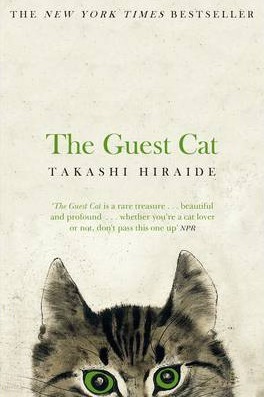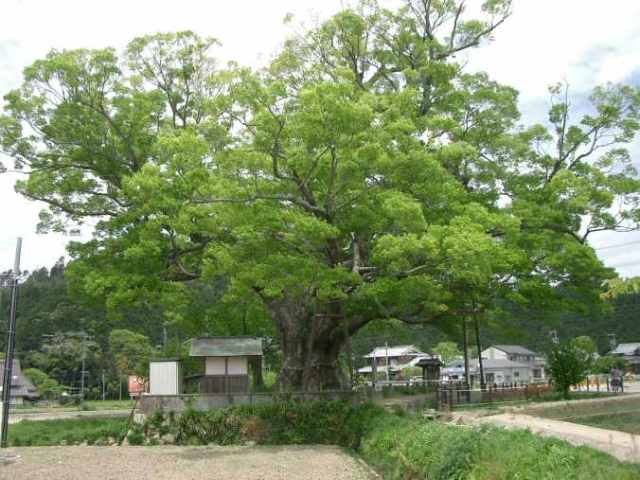
courtesy book depository
Originally written in Japanese by the poet Takashi Hiraide, The Guest Cat, is a novella that delights. The story is a simple one on the surface — a couple of freelance writers live in a guest house in the grounds of a larger old style Japanese house which is owned by an elderly couple. Life is fairly mundane and they no longer have a lot to say to each other when Chibi, the neighbour’s cat, starts to visit. A relationship develops between the writers and the cat and eventually the cat spends longer periods of time with them. The cat has a profound impact on their lives. One day she doesn’t come.
The detailed description of both the guest house and the grounds leaves you with a clear vision of the surroundings. You could literally paint a picture after reading his words.
The small window in the corner of our kitchen bordered on a tall wooden fence, so close a person could barely pass by. from inside the house, its frosted glass looked like a dim movie screen. There was a small knot hole in the wooden fence and the green of the bamboo hedge — which was about ten feet wide, to the north of the alley — was always projected onto the crude screen.Whenever someone walked by in the narrow alleyway, a figure formed, filling the entire window. Viewed from the dark interior of the house, sunny days seemed ever more vivid, and working perhaps on the same principle of camera obscura, the figures of people walking past were turned upside down.
Although this is seemingly a simple novella it has many layers and with a variety of themes apart from the cat which comes to visit. It looks at life in Tokyo in the 1980,s, the economic downturn and the skyrocketing prices for property leading to frenzied building of condominiums and the loss of green places in Tokyo. Through the relationship that develops between landlord (the owner of the big house) and the tenant (of the guest house) ageing and issues related to frailty, having to leave your home, and finally losing a lifelong partner are examined. It examines life philosophy all from a Japanese perspective.
And then we come to the ending which raises more questions than it answers. Is it a problem with the translation that did not show itself in any other part of the book or is it a clever ploy by the author to immediately set the reader back to the beginning to find the clue that was missed on the first reading. I have only read it the once but have to admit – it is only a short book – I will read it again. I think I will pick up so much more than I did on the first reading.
An interesting point was that no character was named apart from the cat and later in the book a few other cats. my wife, my parents, landlady, the neighbours were how the book referred to the characters. The closest we came to a name was the assignation of a letter Y to denote a particular friend. The book was narrated by an ‘I” character. It did leave me wondering if this was a memoir being marketed as fiction. The author and his wife are both writers and to me it read like a memoir.
Would I recommend this book – it won the Kiyama Shohei Literary Award and was a best seller in the USA and France – so many other than me liked it. To answer my question I think I would be wary as to who I recommended it to. Cat lovers, those interested in Japan, philosophy and detailed description would enjoy this book. I thought it was delightful and insightful.
Throughout the book a zelkova tree featured prominently. I didn’t know what this tree looked like so have put an image of it here.

courtesy wikipedia https://en.wikipedia.org/wiki/Zelkova_serrata






this sounds like a beautiful story
LikeLiked by 1 person
It was beautiful and it gave you the feel for old Japan in a modern world.
LikeLiked by 1 person
This is a terrific review, Irene. It really makes me want to read it, and that’s what a review should do! I agree that the prose is so descriptive you could paint it (If you could paint, that is, LOL!) Oddly, I do know what a zelkove looks like. My daughter fell in love with an illustration of one a few years back, and thought it would be perfect for her front yard. We had a 12 foot tree planted, and it thrived with her tender care. Unfortunately, she had to sell the house, and the new owners don’t look after it, so it hasn’t reached it’s full potential.
LikeLike
A thoughtful and lovely review, Irene. And I am a huge cat lover, so I will have to take a gander at this book.
LikeLiked by 1 person
lI’m sure you’ll find it a delight Noelle.
LikeLike
You raise a really interesting point, Irene. How much does a translation capture the voice of the author? Authors must trust that the translator is faithful to the story and also understands the subtle meanings of the original, plus how to evoke the same in the translation. I’ve often wondered the same – how true is the translation?
This does sound like a really worthwhile book to read.
LikeLiked by 1 person
I’d be interested to hear what you think after you read it Sharon (I know – like me you have a pile a mile hight and it could be some time).
The translator was successful I feel so I don’t know why this last bit would have thrown him but there could well be cultural differences that he didn’t get. Worth a read definitely.
LikeLiked by 1 person
Or the ending might be as unsatisfactory as you found it in the original language.
LikeLiked by 1 person
I guess that is something I will never know – I don’t think I am planning on taking Japanese lessons.
LikeLiked by 1 person
Pingback: Agatha: A Book Review | Reflections and Nightmares- Irene A Waters (writer and memoirist)